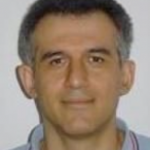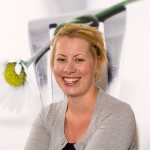I took up a one-month secondment in Bournemouth (England). The secondment appealed to me for lots of reasons. After working at Ronge & Partner for almost five years, I was keen to develop new skills and broaden my view on especially the research and bidding procedures of universities. It was an opportunity to develop skills I´d identified through the career pathways process and it was a chance to gain experience in a different part of working atmosphere – but within the supportive structure of a secondment.
For me it is absolute positive to be part of this fantastic project. Secondments benefit staff by developing their skills. The host department benefit by being able to fill a short-term vacancy with someone who brings a fresh approach and the home department benefits when staff return with experience from a different environment. I´ve grown in confidence and it´s raised my profile – particularly with challenging situation – so if other opportunities arise I´d be able to take advantage out o fit.
I have the feeling that through the secondments our company built a long-term relationship with the participating partners, paving the way to sharing knowledge among universities and industries. Personal I got much more out of it than I thought I would. I got a whole load of interesting new ways of looking at, and doing things.
We all have different habits of handling situations and it´s only by being in a new environment that you learn there may be better ways of doing some things.
(Rebecca, 29 years, Ronge & Partner – Austria)
I did one month secondment in Bournemouth University in May 2016.
Working as Research Project Assistant in IPBR I was happy to collaborate with BU team who shared with me their strong expertise in Project Management and Funding Development.
During the secondment I could participate in the Grant’s Academy workshop designed to build research bidding confidence for applying on European Programs. The collaboration with department of Funding Development enhanced my knowledge on a different International project calls and the optimal ways of project calls monitoring. I could participate in international conferences organized by Bournemouth University. These events bringing together specialists from both Academia and Industry fields were a great opportunity to network and to create new professional contacts.
I could also interact with Researchers and PhD students from Bournemouth University. Learning about their projects allowed me to keep up to date with the research in my work field.
From my side I brought the expertise on the Research Funding in France. My language knowledge was useful to contribute to the dissemination activities.
This collaboration helped me to create a larger vision on my work in IPBR and to think of new effective tools to develop. Being with English speaking colleagues was the perfect way to improve my English knowledge and enhanced my confidence in the English language. This month was also fruitful in broadening my cultural awareness and experiencing different locations.
(Olga, Institut Paul Bocuse – France)
 I spent a one-month period for completing secondment in Lyon (France). The secondment appealed to me for several reasons. I had the opportunity to visit a French institution for the first time and in a different discipline than mine. I saw how people work and organize their groups in a research institute specializing in food and nutrition and broadened my view on the actual procedures adopted for coordination among participants in this field. It was a chance to gain experience in a different part of working atmosphere.
I spent a one-month period for completing secondment in Lyon (France). The secondment appealed to me for several reasons. I had the opportunity to visit a French institution for the first time and in a different discipline than mine. I saw how people work and organize their groups in a research institute specializing in food and nutrition and broadened my view on the actual procedures adopted for coordination among participants in this field. It was a chance to gain experience in a different part of working atmosphere.
In general, secondments benefit staff by developing their skills. The host organization benefits by hosting people with a different approach and the respective home organizations do benefit when those people return, armed with new experience and ideas for improving existing processes. On the other hand, local staff at the host organization interacts with the visiting staff gaining new experience by their views.
Moreover, secondments offer the opportunity of building long-term relationship with people from different organizations and often lay the foundations for new projects and partnerships. In addition, participants gain new experience, since they feel they have to demonstrate and improve the way they work and solve problems in the presence of an international audience. This strengthens their self-confidence and enhances their ability for mobility. It is also an opportunity to test the rigorousness of their working habits and conversational ability.
(Dr. Panagiotis Fouliras, University of Macedonia – Greece)


